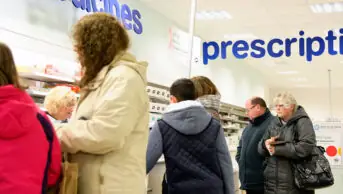
Shutterstock.com
A French study of data on adverse drug reactions (ADRs) has highlighted a link between drug shortages and medication errors.
In the study, published in the British Journal of Clinical Pharmacology on 29 September 2022, researchers considered 462 cases recorded in the French Pharmacovigilance Database between 1985 and 2019 that mentioned a drug shortage.
Medication errors were identified in 11% (51) of the cases, mostly occurring at the administration step and involving a human factor. Of these cases, life-threatening situations were reported in three cases and fatal outcomes were reported in four.
Overall, the researchers found that the number of cases of drug shortages increased over time, accelerating between 2010 to 2019, with the highest number of cases (114) reported in 2019. Almost all pharmacological classes were involved.
“A drug shortage may lead to a replacement of the unavailable product by an alternative,” the researchers wrote. “However, this alternative may have different packaging, labelling, dosage and sometimes a different route of administration that may increase the risk of a medication error.”
The study authors concluded that the findings emphasised the clinical impact of drug shortage in terms of ADRs, medication errors and inefficiency.
“These observations underline the importance of a global health policy programme to limit the occurrence of drug shortages and to reinforce the information provided to patients and healthcare professionals in this context to limit risk.”
In the UK, medication shortages are on the rise. The UK government granted a record 159 price concessions in September 2022 for medicines such as alendronic acid and aripiprazole, owing to shortages, which pharmacists had warned are impacting patient care and potentially causing harm.
Andy Fox, consultant pharmacist medicines safety and deputy chief pharmacist at University Hospital Southampton NHS Foundation Trust, said the findings of the French study were “relevant” to the UK.
“We are experiencing an increasing number of shortages over the last few years, the reasons for which are well publicised,” he explained.
“[The study] highlights the need for careful management and risk assessment of both the product that is in short supply and the replacement.”
Fox added that “interestingly” the report mentioned that packaging differences contributed to the medication errors.
“There is a clear role for the medicines safety officer and network in helping to manage local issues as well as communicate across the network any learning,” he added.
In August 2022, results from The Pharmaceutical Journal’s annual salary and job satisfaction survey showed that 54% of UK-based pharmacists said medicines shortages had put patients at risk over the past six months.


